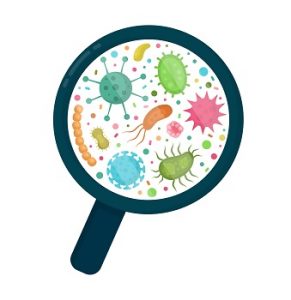
More evidence that low-calorie sweeteners are bad for your health
Studies show that artificial sweeteners can raise the risk of hypertension, metabolic syndrome, type 2 diabetes and heart disease, including stroke.

Natural Health News — Women who have polycystic ovary syndrome (PCOS), tend to have less diverse gut bacteria than women who do not have the condition, according to new research.
PCOS is a common hormone condition that contributes to infertility and metabolic problems, such as diabetes and heart disease.
It affects an estimated 7-10% of women of childbearing age, and women are diagnosed with PCOS when they have at least two of the three key features of the condition:
The collaboration between researchers at University of California San Diego School of Medicine, in collaboration with colleagues at Poznan University of Medical Sciences in Poland and San Diego State University was published online in the Journal of Clinical Endocrinology & Metabolism.
Hormonal link to gut flora
The researchers examined faecal swabs from 73 women diagnosed with PCOS. Their samples were compared to swabs from 48 women who did not have PCOS and 42 women who had polycystic ovaries but did not have the other features of PCOS.
» A collaboration between researchers in the US and Poland has shown that women with polycystic ovary syndrome (PCOS), tend to have less diverse gut bacteria than women who don’t have PCOS.
» The less diverse populations of gut bacteria, in women with PCOS appeared to be linked to elevated testosterone levels which are common in this condition.
» More research is needed to see if working through the microbiome offers potential for treating the condition.
The study found the women who had PCOS had the least diverse gut bacteria, women who did not have the condition had the most diverse gut bacteria and women who had polycystic ovaries tended to have more diverse gut bacteria than women with PCOS, but less diversity than women without the condition.
“The findings indicate women with PCOS tend to have less diverse populations of gut bacteria, a trend which appears to be linked to elevated testosterone levels,” said Varykina Thackray, PhD, senior author of the study and associate professor in the Department of Reproductive Medicine at UC San Diego School of Medicine.
The diverse bacteria in the gastrointestinal tract play an important role in human health. Recent research suggests that gut bacteria differ in individuals with metabolic conditions, such as obesity, compared to individuals who do not have those conditions.
“Our study suggests testosterone and other androgen hormones may help shape the gut microbiome, and these changes may influence the development of PCOS and the impact it has on a women’s quality of life,” adds Thackray.
Thackray says additional research is needed to determine whether specific gut bacterial species contribute to the development of PCOS and whether the microbiome offers potential pathways for treating the condition.

Please subscribe me to your newsletter mailing list. I have read the
privacy statement